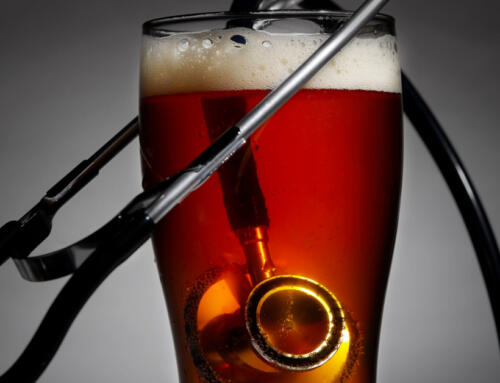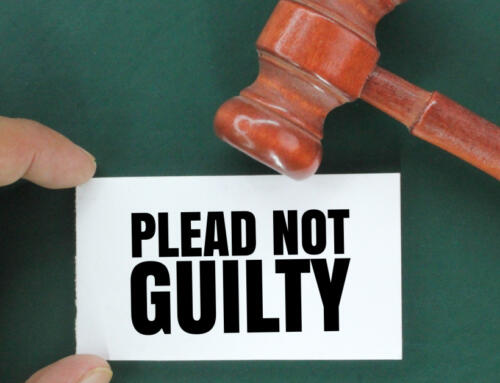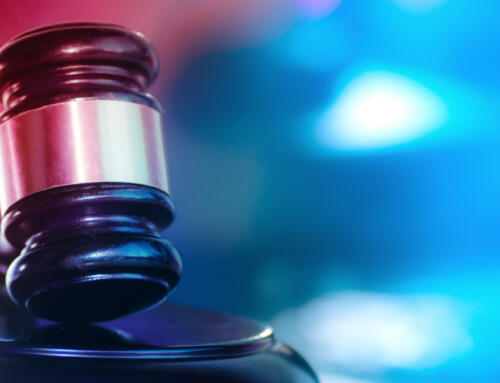The Wednesday before Thanksgiving is reportedly among the heaviest days of alcohol consumption in the United States. This has earned it the nicknames “Blackout Wednesday” and “Drinksgiving,” among others. Thanksgiving is also among the busiest travel holidays of the year, and these factors combine to lead to an extremely high number of DUI arrests over the holiday period.
So, if you got a DUI in Philadelphia during “Blackout Wednesday” or “Drinksgiving,” you can rest assured that you are not alone. But, even though the courts may be busier than usual, this does not mean you can expect to get off easy. On the contrary, prosecutors and judges often emphasize punishment and deterrence during the holiday season. As a result, you must be prepared to fight your DUI by all means available.
With this in mind, here are 10 important facts you need to know:
1. The Prosecution Must Prove You Were Driving Under the Influence
In DUI cases, the prosecution has the burden of proof. If prosecutors cannot prove your guilt beyond a reasonable doubt, then you are entitled to a “not guilty” verdict in court. This means you always have a chance to avoid a conviction, and you should never assume that the outcome of your case is a foregone conclusion.
2. You May Have Defenses Even if You Were Driving Drunk
In fact, even if you were clearly driving drunk, you could still have several defenses available. Did the police profile you? Did the arresting officer do everything required to validate your breathalyzer and/or field sobriety test results? Is the prosecution’s evidence inadmissible in court for other reasons? Numerous issues can provide defenses in DUI cases even when the driver’s impairment is not in question.
3. Even a “Standard” DUI Carries Steep Penalties in Pennsylvania
While there are several possible defenses to a DUI charge in Pennsylvania, you cannot afford to assume that everything will be alright. Jail time is a possibility for first-time offenders (although many defendants are able to avoid jail time), and jail time is mandatory for those who have a prior conviction within the past 10 years. If you get convicted, you will be forced to deal with the consequences for years to come.
A “standard” DUI case involves 0.08% to 0.10% blood alcohol concentration. If your BAC was above 0.10%, you could be charged with a “High BAC” or “Highest BAC” DUI. These charges carry enhanced penalties for both first-time and repeat offenders.
4. The Penalties for a Felony DUI are Far More Severe
While most DUIs are misdemeanors, Pennsylvania law establishes several types of felony DUI charges. If you are being charged with a felony offense, you could be facing a minimum one-year prison sentence (with the potential for up to 10 years), $15,000 or more in fines, and other penalties.
5. A DUI Stays on Your Record
As noted above, Pennsylvania has a 10-year “lookback” period for charging drunk drivers as repeat offenders. This means that if you get convicted of DUI in your current case, and you get arrested for DUI again within the next 10 years, you will be at risk for enhanced penalties.
Additionally, while DUIs are eligible for expungement in Pennsylvania, you must successfully file for expungement to have your record cleared (unless you participate in an Accelerated Rehabilitative Disposition (ARD) program). Having a DUI conviction on your record can negatively impact your life for years; and, even once you clear your record, you can still face long-term consequences due to getting kicked out of school or falling behind in your career.
6. You May Be Eligible for Pennsylvania’s Accelerated Rehabilitative Disposition (ARD) Program
Pennsylvania’s Accelerated Rehabilitative Disposition (ARD) program is available to first-time DUI offenders. If you are eligible for the program (and you successfully complete it), you can keep your DUI off of your record. While successfully completing the ARD program requires effort, the effort is well worth it. A Philadelphia DUI lawyer can help you determine your eligibility and explain what you need to do to participate.
7. There are Several Ways to Challenge Breathalyzer Results
Many people think that if they blow 0.08% or above on the breathalyzer, their DUI case is over. But, this is not the case. Individuals who are facing DUI charges in Pennsylvania will be able to successfully challenge their breathalyzer test results in many cases.
8. If You Refused the Breathalyzer, You Must Deal with the Consequences
If you refused the breathalyzer during your DUI stop, you must deal with the consequences. Providing a sample is mandatory under Pennsylvania’s “implied consent” law—unless the arresting officer failed to comply with the law’s requirements. Violating Pennsylvania’s “implied consent” law carries its own penalties, and it also gives rise to an inference that you were drunk behind the wheel.
9. You Cannot Simply Expect Your DUI to Go Away
As much as you might like for your DUI case to go away, it will not. It will progress through the court system, and ignoring your situation will only make it worse. Even though it is the holiday season, you need to give your DUI case the time and attention it demands, and you need to do everything you can to protect yourself to the fullest extent possible.
10. A Pennsylvania DUI Lawyer Can Help You
Regardless of the facts of your case, a Philadelphia DUI lawyer can help you. Your lawyer can determine what defenses you have available, and your lawyer can represent you in court. If you qualify, your lawyer can help you enter into the ARD program or negotiate a plea deal, and, if necessary, your lawyer can fight to protect you in court.
Schedule a Consultation with Philadelphia DUI Lawyer Brian Fishman
If you face a DUI charge in Pennsylvania, you should discuss your case with a lawyer as soon as possible. To schedule an initial confidential consultation with Philadelphia DUI lawyer Brian Fishman, call 267-758-2228 or tell us how we can reach you online now.






